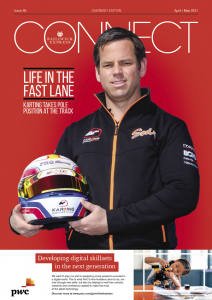
As we enter the spring, the difference in the weather is perceptible, as is the difference in people’s mood.
The last two months of being locked down came, it is fair to say, out of nowhere. When I took a call early on the morning of Saturday 23 January, the tone of the comms officer, who I’ve known for many years, was telling. There was something sombre in his voice, but also a sharpness, an alertness that presaged the fact that within the space of just a few hours, those easy freedoms we had become accustomed to again would soon evaporate.
As the days and the weeks went on, the reasons for that immediate decision started to manifest, as unexplained community seeding of the more transmissible Kent variant of Covid-19 was linked to schools and to multiple high-profile events and venues.
We were told it would be hard and sharp, and it has been, not just in terms of being physically locked down, but with the fallout from being socially distanced. For some, that distance has widened further this time around, and they have found themselves on the cliff edge of a mental health crisis. Even people I have spoken to, who coped well with the first lockdown, have encountered problems this time around. A pandemic in perpetuity has challenged everyone.
There are now seeds of hope that (whisper it quietly) this might be our final lockdown as more and more people receive the vaccine and the whole situation reaches endemic levels.
There is an understandable focus, politically, on directly focusing on post-pandemic recovery. This, however, is such a broad area and is not just a matter of setting new targets and responding to the financial shortfall. There are issues that run deep in the fabric of the island that persist and, if anything, have been exacerbated by lockdowns and the many financial and psychological effects.
One of those is our housing market. While transaction prices have boomed, above inflation increases, and reduced or stagnant wages, mean they only benefit some in the community. In reality, that first step onto the housing ladder is becoming a sinew-straining leap.
We have spoken to four key players, all working in different areas of the industry, to break down the impact behind the words and to work out how to solve this crisis.
Being locked down has heightened many people’s appreciation for the natural beauty on our doorstep – the flora and fauna, the vibrant marine life and the idyllic Bailiwick we are a part of.
There is an important worldwide conversation around climate goals and environmental sustainability, which we have delved into in this edition of CONNECT.
Where we live has become increasingly important during lockdown – so has where we work. There are some heart-warming stories globally and closer to home of people who have seized the opportunity to reinvent their working life. Not all of those ventures will work in the long-term, but many will.
We decided to speak to Matt Ford, owner of Karting Guernsey, about how he turned his hobby and childhood passion into a long-term sustainable business.
Enjoy that and more, in Guernsey CONNECT!